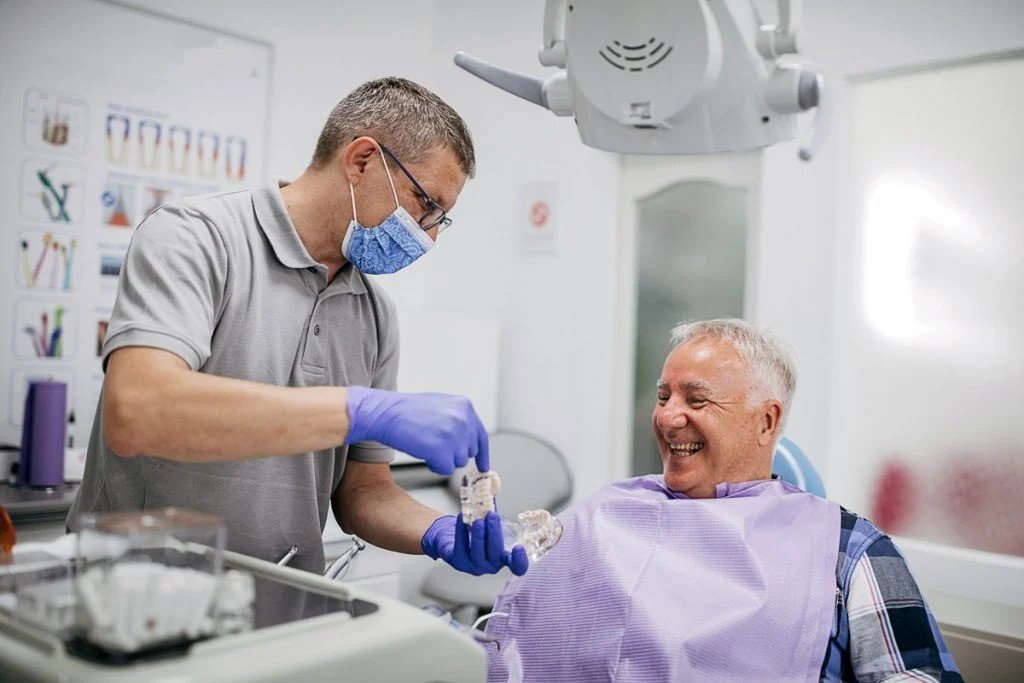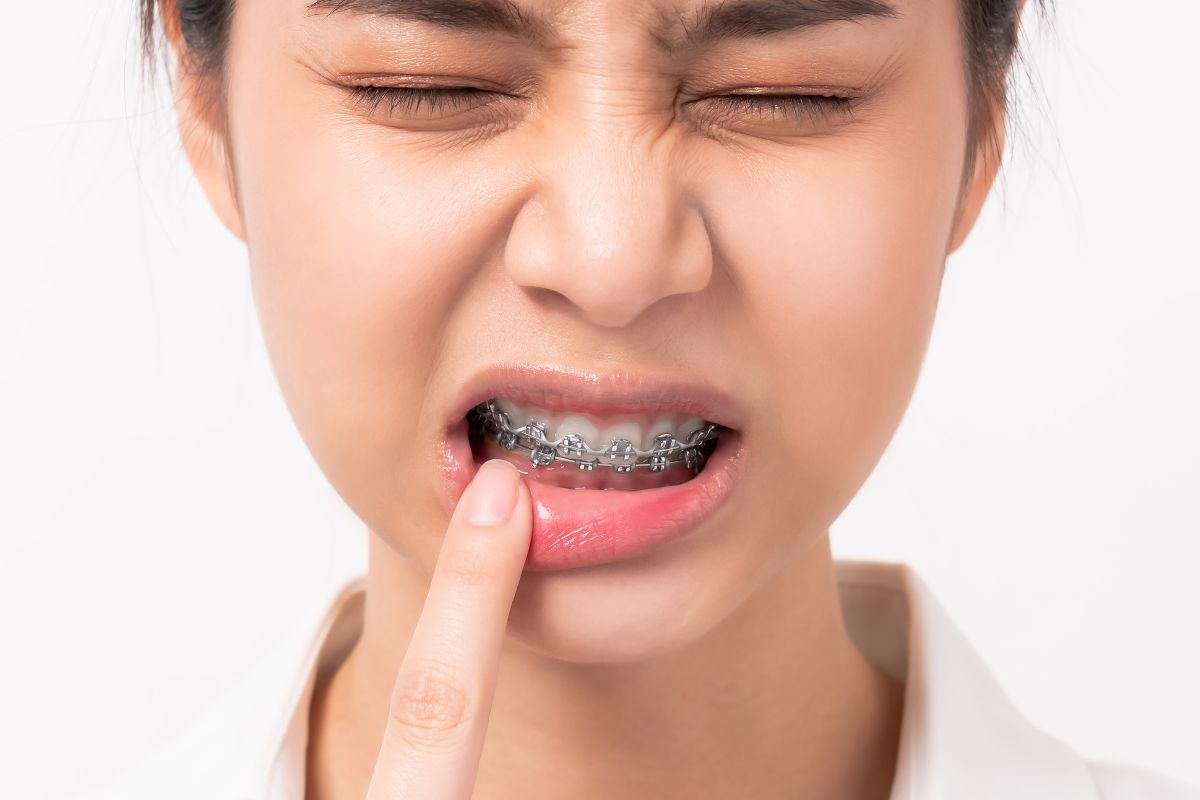Aging can lead to several health issues, including dental health problems. It means dental care for seniors should be a top priority. According to the Centers for Disease Control and Prevention, economically belonging to racial and ethnic minorities and lacking insurance tend to have the poorest oral health. Likewise, the risk rises for those who are homebound, disabled, or institutionalized. Many older Americans lack dental insurance because the federal Medicare program does not include routine dental care, and they lose their benefits upon retirement. 1
The numbers look bleak and spell a burden for the aging population in the long run. While oral health deterioration is part of aging, staying informed can make a big difference. For those seeking solutions, searching for Newton MA Invisalign dentists near me is a smart move to find specialists who can help keep your smile strong at any age.
It can prevent dental health issues and ensure that you don’t have to worry about toothache, emergency dental visits, and long medical bills. We will share a comprehensive overview of oral health risks for older adults and steps to maintain dental well-being over the years.
Why Senior Citizen Dental Care is Critical: Understanding Your Risks
Whether you had the healthiest set of teeth as a youngster or were regular with your dental check-ups, you may experience age-related oral health complications. Research establishes that aging adults have a high probability of developing many oral diseases over the years. Here are a few you should be vigilant about.
Untreated Tooth Decay
According to surveys of the American population, tooth decay has affected nearly 90% of people aged 20-64 at some point. In older adults aged 50-64, the prevalence was even higher, reaching a whopping 96%. The worst part is that tooth decay remains untreated among 1 in 5 people. The numbers underscore the significance of dental care for senior citizens. 2
Gum Disease
Periodontal disease is another age-related oral health challenge. With 70.1% of adults 65 years and older having gum disease, it is definitely something seniors should be worried about. The worst part is that gum disease can affect the overall quality of life as it causes pain and accelerated tooth decay. 3
Tooth Loss
Tooth loss is another risk factor warranting extra attention for senior citizen dental care. Statistics show that 1 in 5 American adults over 65 have lost all of their teeth. Additionally, complete tooth loss is twice as likely among people over 75 (26%) compared with those aged 65-74 (13%). Missing teeth (even when wearing dentures) often affects nutrition as it requires sticking with soft food, which means seniors cannot consume fresh fruits and vegetables. 4

Oral Cancer
Oral cancers, primarily diagnosed in older adults, are another dire dental concern for seniors. Over the years, the average age for oral cancer diagnosis has been established as 64 years. The number clearly correlates the risk of the disease with aging. 5
Xerostomia
Xerostomia is a medical condition leading to oral dryness due to a lack of saliva production. Older adults are more susceptible, with 30% of Xerostomia patients being over 65 and 40% over 80. The condition often surfaces as an adverse effect of medication. Those taking more than 4 prescription drugs daily are at a higher risk. Comorbid conditions such as diabetes, Parkinson’s disease, and Alzheimer’s disease also contribute to the risk. Dry mouth may cause caries, mucositis, cracked lips, and fissured tongue. 6
Teeth staining, root decay, diminished sense of taste, thrush, uneven jawbone, and denture-induced stomatitis (inflammation) are a few other reasons to go the extra mile with senior citizen dental care. 7
Actionable Tips for Dental Care for Senior Citizens
Poor oral health can lead to severe consequences over the years. The research established the link between gum inflammation (gingivitis) and the risk for heart disease, lung disease, strokes, and blood vessel blockage. Unhealthy teeth can also affect your smile, confidence, and social life. Fortunately, proper dental hygiene is good enough to prevent tooth and gum disease and fortify your defenses against these complications in the long run. 8
Here are a few actionable tips for senior citizen dental care:
Brush and Floss Every Day
Brushing and flossing are perhaps the simplest yet most crucial dental-care rules you must follow for a lifetime. However, adherence to these rules should be an even bigger priority for seniors. As a rule of thumb, you must brush your teeth twice a day and rinse your mouth every time you eat something. Elderly citizens without teeth should care for the gum surface by removing the plaque with a soft cloth.
Flossing has been proven to be even more significant in managing dental caries and periodontal disease over the years. While brushing eliminates some plaque, it may not reach in between the teeth, where disease-causing germs lie. Flossing addresses the problem by removing germs from every nook and corner. 9

Avoid Smoking & Tobacco
Studies show that smoking significantly contributes to the risk of periodontal diseases. It can lead to gingival recession, severe periodontitis with periodontal tissue destruction, and susceptibility to tooth loss. Additionally, smoker patients have a less favorable response to surgical and non-surgical periodontal treatment. They also exhibit more frequent recurrence during supportive periodontal treatment. 10
Avoiding smoking can safeguard your teeth from these potential threats. You get additional benefits as it offers protection from other fatal conditions such as heart disease, oral cancer, lung cancer, and other grave health issues. Another key element of senior citizen dental care is steering clear of prolonged tobacco-chewing habits.
Prioritize Healthy Diet and Good Hydration
The American Dental Association highlights a bidirectional relationship between diet nutrition and oral well-being. While your diet determines the health of your teeth and gums, it’s the other way around too. Optimal oral well-being enables you to be on top of the variety and quality of the nutrients intake.
As you step into your golden years, you should load up on calcium intake to fortify your teeth and bones. Foods high in Omega-3 acids can also improve oral health. Besides eating right, you should avoid sugars, acidic food and beverages, and starchy snacks. 11
Good hydration is another factor contributing to oral hygiene. It neutralizes the acid in your mouth and flushes away sugar and bacteria by keeping your mouth moist. Additionally, it curbs the possibility of tooth decay and gum infection. Not to mention, you get additional health benefits such as high energt levels, weight loss, and elimination of toxins from the body.
Stay Alert about Medication Side Effects
Did you know that the medications you trust to treat age-related health issues can affect your teeth and gums? These include some anticoagulants, calcium channel blockers, oral bisphosphonates, gummy supplements, non-steroidal anti-inflammatory drugs, and anti depression medications. You may even face dental issues due to some antibacterial mouth rinses. 12
Awareness can be a savior as it enables you to understand the side effects of prolonged or lifetime medication. You can discuss alternatives if you absolutely need medication for a chronic condition. Additionally, you may use extra precautions to reduce the impact of medication-related side effects.
Denture Care
Proper denture care is another essential aspect of dental care for senior citizens. Even if dentures are fake teeth, they deserve all the TLC you can give. Daily brushing and cleaning is the first step. You also need to rinse your dentures with cleaning liquid as recommended by your dentist.
Studies also link denture-wearing with malnutrition risk in aging citizens. You must discuss the concern with your specialist and seek diet recommendations to fulfill your nutritional needs while wearing dentures. Regular dental checks are also a key aspect of denture care when it comes to oral well-being in seniors. 13
Invisalign Treatment and Dental Care for Senior Citizens
Invisalign is a revolutionary dental treatment offering both aesthetic and functional benefits. Besides discreetly aligning your teeth (since these aligners are not visible like braces), it can improve gum health and strengthen your jaw bone. For seniors, whose gums tend to recede and jawbones may weaken over time, Cambridge Invisalign braces can be a true savior. They make brushing and flossing more effective while also stimulating the jaw, taking senior citizen dental care to the next level.
However, you need to take some precautions to make the most of Invisalign treatment. Your Boston Invisalign specialist is the best person to guide you in this context. You should not hesitate to seek advice, ask for oral care tips, and discuss the potential risks of Invisalign treatment as a senior. Awareness enables you to make informed decisions and take relevant measures to get the best results from Invisalign.

Dental Checks for Seniors: What to Expect
Free dental care for senior citizens is the last thing you can expect unless you have optimal insurance coverage, which is not a common thing in the US. Avoiding the need for expensive treatments is a better alternative. You can achieve it by doing your bit to maintain healthy teeth and gums over the years. Besides good nutrition and a robust dental care regimen, timely check-ups can keep you ahead of oral health complications. You can expect dental check-ups to be more thorough as a senior.
Your dentist will seek a proper history by asking you the following questions before the dental exam:
- When did you get a dental check-up?
- What was the reason for your last dental appointment?
- Have you noticed any recent changes in your teeth, gums, or mouth?
- Do you have any loose teeth or dental sensitivity?
- Do you experience difficulty tasting, chewing, or swallowing?
- Do you have pain, bleeding, or sores bleeding in your mouth?
- Have you noticed anything suspicious such as oral lumps, bumps, or swellings?
During the oral exam, the specialist checks your face and neck, examines your teeth, gums, jaws, lymph nodes, and salivary glands, inspects your bites, and has a close look at your tongue and other interior surfaces of your mouth. They perform extra checks on your dentures and ask about any problems with them.
Making Dental Care for Senior Citizens Affordable and Accessible
As a senior without dental insurance, you will surely stress about fitting dental care into your budget. While you cannot expect free dental care for senior citizens, it can be still accessible and affordable. Some dental clinics charge reduced fees for their services through society-sponsored assistance programs. Aid may vary from community to community, so you can call your local dental society to get details about low-cost care locations. You can also look for clinics providing easy payment plans to avoid feeling the pinch of expensive dental treatments.
The Bottom Line
Dental care for seniors shouldn’t be about spending a fortune on expensive treatments and undergoing painful procedures. A proactive and preventive approach can help you minimize the risks. With this mindset, you tend to take timely action to nip the smallest issues in bud rather than letting them aggravate. Most importantly, you can experience the benefits of healthy teeth and gums for a lifetime.
- https://www.cdc.gov/oralhealth/basics/adult-oral-health/adult_older.htm
- https://www.nidcr.nih.gov/research/data-statistics/dental-caries/adults
- https://www.cdc.gov/oralhealth/conditions/periodontal-disease.html
- https://pubmed.ncbi.nlm.nih.gov/25973996/
- https://www.cancer.org/cancer/types/oral-cavity-and-oropharyngeal-cancer/about/key-statistics.html
- https://www.ada.org/en/resources/research/science-and-research-institute/oral-health-topics/aging-and-dental-health
- https://www.webmd.com/oral-health/dental-care-seniors
- https://www.health.harvard.edu/staying-healthy/the-seniors-guide-to-dental-care
- https://www.ncbi.nlm.nih.gov/pmc/articles/PMC6478368/
- https://www.ncbi.nlm.nih.gov/pmc/articles/PMC8494073/
- https://www.ada.org/en/resources/research/science-and-research-institute/oral-health-topics/nutrition-and-oral-health
- https://www.aarp.org/health/conditions-treatments/info-2022/medications-and-teeth.html
- https://www.mdpi.com/2072-6643/12/1/151
%202.svg)



